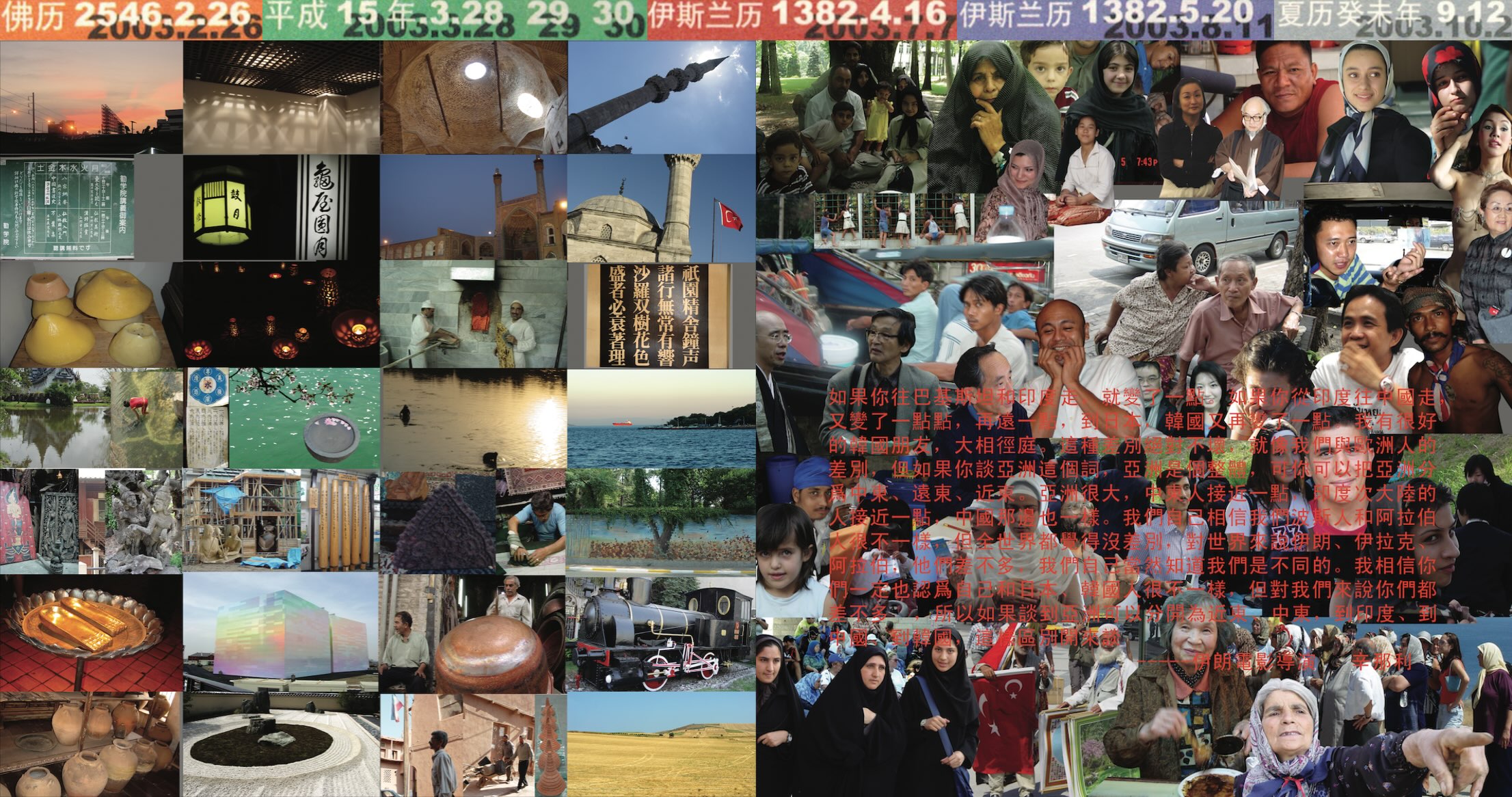2003

Edges of the Earth: Contemporary Asian Art Exploration Project was initiated by China Academy of Art in November 2001, and implemented in 2003. The project aimed to broaden cultural perspectives, and establish modes of dialogue within Asia that departed from traditional ‘Western vs. non-Western’ frameworks, reviving and reconstructing modes of self-expression within the Asian cultural community.
The core concept of the project, ‘dual time’, focused on the juxtaposition between Eastern calendars (Buddhist, Japanese, Islamic, and Chinese calendars) and the Gregorian calendar within various Asian countries. It viewed this juxtaposition as the result of traditional knowledge resources encountering Western modernity. ‘Dual time’ represents not only calendrical time but also ‘Asian time’ in the cultural and spiritual sense. It illustrates the various Asian perspectives arising from the interaction and overlap of global contexts and local knowledge resources, capturing the fundamental dynamics of Asian societies in transition.
Over the course of a year, the project team visited numerous artists and art institutions in Bangkok (Thailand), Tokyo and Kyoto (Japan), Tehran (Iran), Istanbul (Turkey), and Hangzhou (China). On their visits, the team explored the role of culture and art within the transformation of Asian societies, addressing the crisis faced by Asian cultural traditions, and examining migration and cultural adaptation as methods of defusion and creation. Following their explorations, the exhibition ‘Dual Time: Asian Contemporary Art Invitational’ was held in Hangzhou in November 2003, accompanied by the publication of the report Terrestrial Connection: Asian Contemporary Art Exploration, and the release of the documentary Asian Time.
The project was led by chief curator Xu Jiang, with Gao Shiming as executive curator and Qiu Zhijie as documentary director. More than 30 artists, scholars, and curators from China and abroad participated, including Wang Hui, Zhao Tingyang, Naoki Sakai, Arata Isozaki, Johnson Chang, Chen Haiyan, Wu Meichun, Shimizu Toshio, Sakchai Pogunvanich, Babak Tavassoli, and Bedri Baykam, among others.